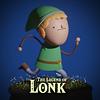Take a photo of a barcode or cover
adventurous
informative
inspiring
A really well written, interesting perspective on an objectively incredible story. He's a very good writer, managing to turn what could be a dry, technical account into an engaging read. He talks more than I expected about his early career, and his first spaceflight in the Gemini program. I liked that, it made it feel like more than just a tale of the Apollo 11 mission. It gives you a good perspective on what being an astronaut is like. The process of getting the job and training and the day to day work you've got to do. And then what doing a space mission is like from their perspective. There was less introspection than I (or I suspect many people) were hoping for, but he does talk about how astronauts aren't the introspective type! And that he sometimes wishes he knew more about what Armstrong and Aldrin were thinking and feeling.
adventurous
challenging
hopeful
informative
inspiring
reflective
medium-paced
Great book, informative, plenty of detail without rendering it boring as a story. If you have any interest in space, the moon landings, engineering or astronomy then this book is definitely for you
informative
medium-paced
adventurous
hopeful
informative
inspiring
slow-paced
The first two thirds or so of this book are intensely full of technical terms and in depth explanations about Collins time at NASA. It makes for a bit of a slog to get through.
The last third however, the book gets a new lease of life as Collins prepares to and does leave the planet, first with Gemini and then with Apollo
The last third however, the book gets a new lease of life as Collins prepares to and does leave the planet, first with Gemini and then with Apollo
adventurous
hopeful
informative
inspiring
reflective
fast-paced
I'll be honest, this is a great book that was a slog to get through. I'll occasionally read a book like this, not because it's endlessly riveting, but because it's so informative. That said, Michael Collins makes the lead-up to the Moon landing as interesting as possible, and occasionally even spellbinding.
Michael Collins was the third astronaut aboard Apollo 11, alongside Buzz Aldrin and Neil Armstrong. He was tasked with transporting the spacecraft around the dark side of the moon while Buzz and Neil landed on it, waiting to rendezvous with the other astronauts once they'd completed their mission exploring the lunar surface.
This book really shines when Collins waxes rhapsodic about his 2 journeys through space (the first time in an earlier Gemini mission, where they literally open the top of their shuttle, allowing him to stand up into space and take pictures of infinity with a film camera!!!). Collins is acerbic and brilliant at all points in his narrative, but he can be downright poetic, delivering passages that I believe will be read with amazement centuries from now.
Much of the rest of the story is covering Collins' past as a pilot, engineer, and designer of various elements of the Apollo program. These passages are thick with engineering details, and don't have the lyrical brilliance of the book's mountaintop moments. They're still valuable, and I'm glad to have a more practical knowledge about how the 60's space program actually worked (I had NO idea that the astronauts actually helped design the shuttles and landers and pressure suits!), although I can't say that I found each and every page to be equally fascinating.
All in all, it's a great and important book, and anyone would do well to read it. I enjoyed Michael Collins' sardonic brilliance greatly, and felt that he would be a person I'd love to know in real life.
Michael Collins was the third astronaut aboard Apollo 11, alongside Buzz Aldrin and Neil Armstrong. He was tasked with transporting the spacecraft around the dark side of the moon while Buzz and Neil landed on it, waiting to rendezvous with the other astronauts once they'd completed their mission exploring the lunar surface.
This book really shines when Collins waxes rhapsodic about his 2 journeys through space (the first time in an earlier Gemini mission, where they literally open the top of their shuttle, allowing him to stand up into space and take pictures of infinity with a film camera!!!). Collins is acerbic and brilliant at all points in his narrative, but he can be downright poetic, delivering passages that I believe will be read with amazement centuries from now.
Much of the rest of the story is covering Collins' past as a pilot, engineer, and designer of various elements of the Apollo program. These passages are thick with engineering details, and don't have the lyrical brilliance of the book's mountaintop moments. They're still valuable, and I'm glad to have a more practical knowledge about how the 60's space program actually worked (I had NO idea that the astronauts actually helped design the shuttles and landers and pressure suits!), although I can't say that I found each and every page to be equally fascinating.
All in all, it's a great and important book, and anyone would do well to read it. I enjoyed Michael Collins' sardonic brilliance greatly, and felt that he would be a person I'd love to know in real life.
A fantastic, very personal account of the first trip to the moon. It really feels like a person telling you the story of how he, in a way, fell into the role of Command Module Pilot through years and years of successes, failures, dice rolls, personal catastrophes and steadfast dedication.
His quotes on being alone in the CSM as it orbited the moon gave me chills, and you really felt the intensity of just what a remarkable achievement landing on the moon - and actually *returning* in one piece - was.
His quotes on being alone in the CSM as it orbited the moon gave me chills, and you really felt the intensity of just what a remarkable achievement landing on the moon - and actually *returning* in one piece - was.
adventurous
emotional
informative
inspiring
reflective
medium-paced
Described as "the standard by which all other astronaut stories should be measured" and deservedly so. Excellent first-person perspective of the program and two space flights, Mercury 10 and Apollo 11.
Collins employed no ghostwriter, and his clear descriptions of situations and events come through. As a test pilot, he was trained to recall details about the flight, but this is no simple recitation of numbers. The narrative really gives a feel for the astronaut program, both risks and rewards.
For the Apollo 11 flight, I supplemented by listening to https://apolloinrealtime.org/
Though this book weighs in at more than 500 pages, it was hard to put down. I really enjoyed every aspect of this book, easily the best I've read this year.
Collins employed no ghostwriter, and his clear descriptions of situations and events come through. As a test pilot, he was trained to recall details about the flight, but this is no simple recitation of numbers. The narrative really gives a feel for the astronaut program, both risks and rewards.
For the Apollo 11 flight, I supplemented by listening to https://apolloinrealtime.org/
Though this book weighs in at more than 500 pages, it was hard to put down. I really enjoyed every aspect of this book, easily the best I've read this year.




